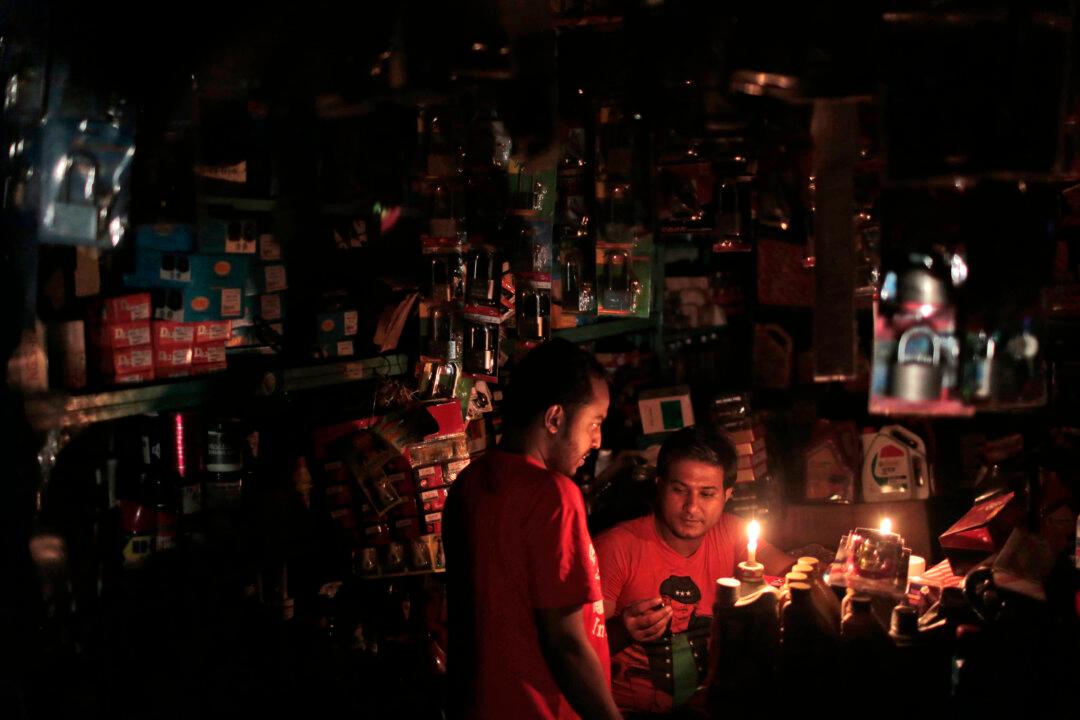Millions of people in Bangladesh were without power on Tuesday after an electrical grid failure triggered seven-hour-long blackouts in most areas of the country.
The national power grid malfunctioned at 2.05 p.m. (local time) on Tuesday, sending much of the country—except for some parts in the North—into a blackout until 9 p.m., local media Dhaka Tribune reported.





